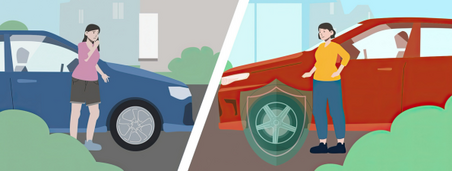EV Batteries, Know the Facts

Electric vehicle (EV) cars are coming into the market hard and fast, but how well do you understand the engineering behind them? Apart from the e-badge on the back, a petrol Vauxhall Corsa looks hauntingly similar to its electric equivalent, but there are significant differences in the works of the vehicle.
The Battery
EVs have a huge power source coming from a pack of batteries, which like the battery in your phone, is made up of lithium-ion. The key difference is that EVs use a pack built up of thousands of individual lithium-ion cells, working together to get you moving from A to B.
Battery Degradation
Just like a normal battery they tend to degrade over time, but this is normally after thousands of miles on the road and not on your second trip to the shops. Additionally, you should be aware that extremely hot or cold conditions may damage your battery, with the need to replace it sooner than anticipated.
This is where an EV battery warranty from MotorEasy comes in handy.
Our extended warranty is one of the first of its kind to include the drive battery, meaning you can relax knowing we’ve got you covered whatever the life of your battery. Not only that, but we’ve also got a whole network of electric car specialists on hand to deal with any repairs you may need.
Electric car battery recycling
Many manufacturers are exploring options to repurpose EV batteries to power homes and buildings. The main challenge in this process is separating the useful materials, such as cobalt and lithium salts. As demand for EVs grow, manufacturers will no doubt solve this problem and, in the process, make more components recyclable. In doing so, an EV will potentially fulfil a broader purpose, reducing the environmental impact of fossil fuels across our everyday lives.
Battery Charging
This may actually seem like one of the most unpractical parts about an EV, but in reality, the ever-changing landscape we live in will soon make it easier to have a plug-in, rather than a fill up car! There are about 11,500 public charging locations in the UK, with close to 32,000 connectors, meaning you will never be too far from one.
If you live in a rural area though, you may need to invest in an at home charging point, allowing your battery to be topped up every morning, ready to go. Lucky for you, the government’s plug-in grant, offers as much as £3,000 towards your next car too and the end of the scheme has been extended from March 2020 to 2022-23. Positive news, much needed after this whirlwind of a year.






